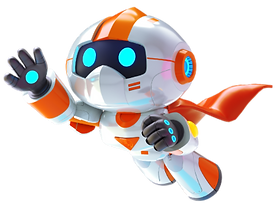
Python 101
Object-Oriented | Text Based | Age 10-14 | 49 Lessons


Python is a dynamic, high-level, free open source, and interpreted programming language. In Python 101, beginners can start from basic concepts of Python and lay a solid foundation for Python.


Unit 01
7 Lessons
80 Challenges
1.Learn about the Python programming environment, understand the Python coding process.
2.Learn about the 'for' loop, understand its usage and execution order.
3.Learn the 'print()' command, understand the application of strings and 'for' commands.
4.Learn about variables, grasp the knowledge related to them, and master the method of defining variables.
5.Learn the 'input()' command and methods of modifying variable values.
6.Learn the 'if' statement, understand its usage and order of execution.

Unit 02
7 Lessons
98 Challenges
1.Learn the 'for-if'nested structure, understand the code execution order.
2.Learn the 'if-else' statement, understand the difference between the 'if' statement and the 'if-else' statement.
3.Review conditional statements, learn the logical operators 'and', and 'or'.
4.Learn about the main data types in Python and the 'for-if-else' nested structure.
5.Learn how to modify variable values and use the for loop to accumulate variables to solve problems.
6.Learn about loop variables. Consolidate the 'for-if' nested structure and logical operators.
7.Consolidate the execution rules of the 'for' loop, strengthen the understanding of loop variables, and use loop variables to calculate the continuous sequence needed.

Unit 03
7 Lessons
79 Challenges
1.Learn the 'if-elif-else' statement, and master its nested structure with the 'for' loop.
2.Learn methods for calculating remainders and quotients in Python, and strengthen understanding of the execution rules of conditional statements.
3.Learn the method of using variables for counting. Review loops and data types, and use mathematical operations in code.
4.Learn to use a 'for' loop to accumulate data.
5.Learn the 'while' loop and 'while' loop nested with 'if' statements.
6.Learn the 'break' statement, understand its usage rules and scenarios.

Unit 04
7 Lessons
88 Challenges
1.Integrate the use of logical operators and the 'for-if' nested structure to solve complex problems.
2.Learn the basic concepts of indexing and its usage rules and scenarios.
3.Learn how to use indexing to extract a portion of a string and understand the rules for extraction.
4.Learn to use the continue statement and break statement to start and end loops.
5.Learn to use nested multiple 'if' statements to solve complex problems.
6.Learn nested 'for' loop and understand the execution order after nesting.
7.Integrate the use of nested 'for' loop and loop variables to solve complex problems.

Unit 05
7 Lessons
85 Challenges
1.Learn the concept of lists and use lists and indexes to classify and match different elements.
2.Learn the concept and methods of traversing lists.
3.Learn the rules and scenarios for using the 'append' and 'remove' statements.
4.Learn the rules and scenarios for using the 'insert' and 'pop' statements.
5.Learn the concept and methods of list slice.
6.Learn methods for counting the number of elements in a list and algorithms for summing.
7.Learn methods for summing lists and finding the maximum and minimum values in a list.

Unit 06
7 Lessons
81Challenges
1.Learn the concept, usage, and scenarios of functions.
2.Learn the specific rules and considerations for defining functions.
3.Learn about different types of functions and their characteristics.
4.Initial study of the pygame zero game toolkit, including drawing characters, Python coordinate systems, and related knowledge.
5.Learn the 'on_key_down()' function, its usage, and considerations.
6.Learn the 'on_mouse_down()', 'on_mouse_up()', and 'on_mouse_move()' functions, their usage, and considerations.
7.Learn 'update()' function, methods for detecting user key presses, and character initialization in pygame.

Unit 07
7 Lessons
68 Challenges
1.Learn the concepts, usage, and scenarios of 'in' and 'not in' statements.
2.Learn the concepts, usage, and scenarios of dictionaries.
3.Learn how to select and print specific information from a dictionary.
4.Learn the concepts, usage, and scenarios of tuple structures.
5.Learn the concepts, usage, and scenarios of mutable loops.
6.Integrate the programming knowledge learned throughout the year to complete your own rock-paper-scissors game.
7.Integrate the programming knowledge learned throughout the year to complete a small program that calculates zodiac signs.


What Students Learned

Spatial awareness skills
Problem-analysis skills
Ability to break down and solve problems
Creativity
Logical reasoning
Scientific thinking
Judgment and reasoning skill
Knowledge transfer skills
Ability to break down problems
Ability to modularize information
Analogical reasoning skills
Ability to construct projects
Spatial imagination skills
Ability to synthesize and apply knowledge
Error correction skills
Problem-analysis skills
Ability to understand abstract concepts
Ability to abstract general problems from specific ones


